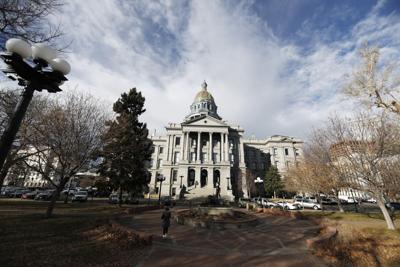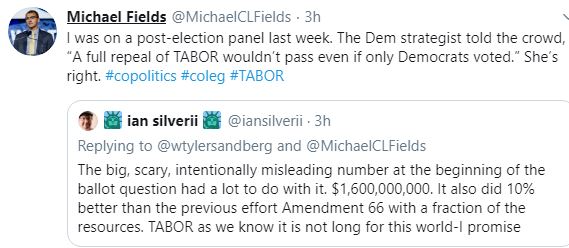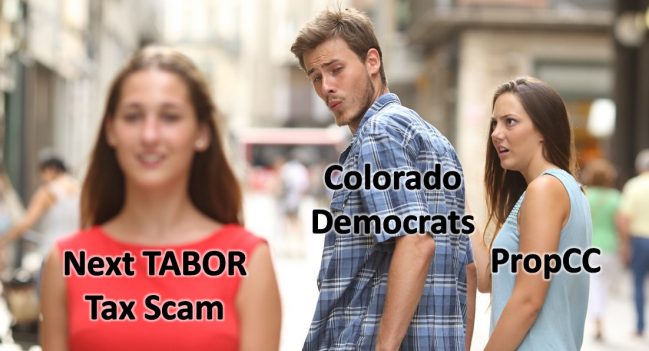 This year’s defeat of Proposition CC was a bitter experience for the state’s Democrats and liberal groups, but apparently not a didactic one, at least for the latter. Proposals are already in the works for some new iterations of the ubiquitous tax-increase ballot measures which crop up every second election or so, just to see if perseverance will ultimately win out over fiscal literacy.
This year’s defeat of Proposition CC was a bitter experience for the state’s Democrats and liberal groups, but apparently not a didactic one, at least for the latter. Proposals are already in the works for some new iterations of the ubiquitous tax-increase ballot measures which crop up every second election or so, just to see if perseverance will ultimately win out over fiscal literacy.
Most of the proposals are conjured up by groups like the leftist Colorado Fiscal Institute, which houses some presumably very bright people whose economic analysis nevertheless boils down invariably to tugging on the General Assembly’s sleeve and pointing at someone else’s wallet.
Carol Hedges, executive director of CFI, said in an interview in some other publication that “what I took away from Prop. CC was that was not the solution.” Clearly. She goes on to say “that solution didn’t address the concerns of folks who voted in the election, and we have an obligation to solve those problems.”
What problems are those, exactly?








